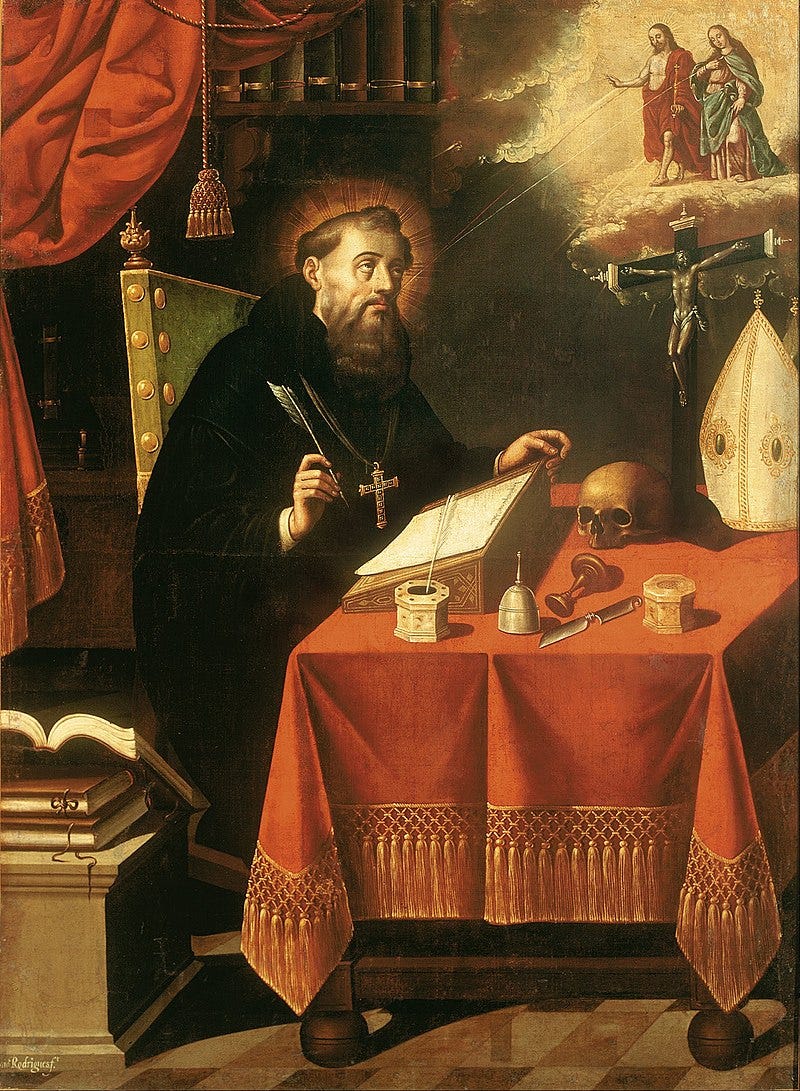On Eternal Desire and the Restlessness of the Soul
The eternal damnation of unfulfilled desire
Many Christians today who consider themselves to be kind, empathetic, and impressed by the ethical progress of modernity recoil at the doctrine of eternal damnation. They argue that unending pain seems a cruelty unworthy of a loving God. The sophisticated and liberal theologian believes hell to be an exaggerated punishment that offends modern sensibilities. Some have suggested that universalism is the only possible doctrine compatible with a perfectly Good God, arguing that no finite sin could warrant infinite punishment, and it would be cruel to inflict such an endless punishment; therefore, they can ignore all the Sacred Scripture that plainly warns of such an infinite punishment.
But such reasoning betrays a shallow grasp of the soul’s true affliction. The torment of hell is not merely the infliction of pain but the eternal state of unfulfilled desire. Desire always begets more desire, and hunger never ends.
We often think of suffering as pain and pleasure as its relief. But this, too, is an illusion. Even if one were granted an eternity of endless pleasure, the soul would still languish. Why? Because desire, once awakened and enthroned as master, never rests. Each pleasure only intensifies the craving for more: more food, more drink, more lust, more pride, more novelty. The soul becomes a vortex of infinite longing; the deeper it drinks, the more parched it becomes.
This is the great irony: an eternity of carnal delight would not be paradise, but perdition. So it doesn’t even matter if Hell is eternal pain in the sense we typically think of it; if God gave us over to pursue our endless lust for pleasure for all eternity, we might think this would subjectively feel pleasurable and be a wonderful way to spend eternity, but objectively this would be abject damnation.
For to be enslaved to desire is to be exiled from peace. It is to chase shadows in a land where the light never dawns. As C.S. Lewis once wrote, “The lost enjoy forever the horrible freedom they have demanded.” Indeed, such a state is not the presence of pleasure, but the absence of fulfillment. It is privation that defines hell, even amidst abundance.
But why is this so? Because man was not made for endless self-indulgence. He was made for communion with God. As St. Augustine says: “You have made us for Yourself, O Lord, and our heart is restless until it rests in You.”
Only God is infinite fullness, the Good without defect, the Source without depletion, Being itself without shadow of non-being. He is perfect Act, perfect Thought, perfect Love. In Him there is no hunger, no lack, no striving. To rest in Him is to rest in the One who lacks nothing and thus alone can satisfy all.
This is why even the most exquisite earthly pleasures leave the soul uneasy. They were never meant to be ends in themselves, but signs pointing beyond themselves to the Infinite. Without God, even the finest joys become burdens. With God, even suffering can become sanctified and sweet. With our Blessed Lord, we find the true Solace that comforts the angst in the heart of our soul, the angst that cries out for peace and rest—we desperately want to rest our heads in the lap of Jesus and be comforted, to have all our anxieties taken away forever.
But why would any Soul choose not to rest in the sacred lap of our Blessed Lord Jesus? Who would choose to reject the bliss of God eternally? Satan and all the fallen angels, for starters. So we know it’s possible for the Will, as a free choice, to eternally reject God, chiefly because of the cardinal sin of Pride.
We might not understand why any soul would make such a choice and how anyone could be that prideful. But it is a doctrine of faith that such a choice is possible, as crazy as it seems. But that is all the more reason to firmly choose to accept our Blessed Lord’s Grace and humble ourselves before Him, bending the knee and submitting ourselves to the Will of God and His Lordship, recognizing and having faith that it is only through the cleansing and meritorious Blood and Water of His Paschal sacrifice that we have any chance of sanctifying ourselves and thus being at all worthy of finally coming to behold the face of God and rest our Souls in the eternal, comforting lap of our Blessed Lord.


